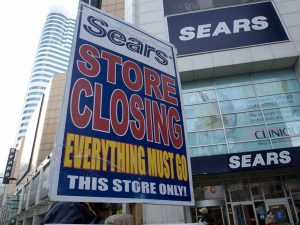We’ve all heard it: A company is simply the sum of its employees. When people think about big organizations, they imagine Mark Zuckerberg, Tim Cook, and Elon Musk – Industry behemoths. What most don’t realize is that they are just one cog within a massive wheel and although they make large contributions, it is the employees doing the “grunt work” who are ultimately responsible for the level of success a company achieves. Growing up, my dad always told me that whether it be a CEO or a custodian, both make immense contributions and should be treated as equally valued workers. More often than not, companies lose sight of this perspective.
Currently, there are changes being made to the Ontario labor code that many hope will result in a more positive employee experience. Some benefits include workers receiving more paid sick days, no requirement to present a doctor’s note, etc. However, these will likely not result in a better workplace environment or employee satisfaction. This is because this change is forced and not being voluntarily implemented by the companies themselves. When we took a look at Zappos in our lecture, it was clear that employee satisfaction was a main priority for the company. Their commitment to their workers paid off and was a key factor to their éclat. Emil Shour illustrates this argument in his blog, writing that “companies with happy employees are more productive, produce better work, outperform the competition by twenty percent, and even take fewer sick days”. This last point is especially interesting as it seems counterintuitive to the changes being made in Ontario. However, by making employees feel better about where they work and what they do, they are more engaged because they feel a part of something bigger than themselves.
Everyone’s had bad experiences working for a company, including myself. In this day and age where more people seek “meaning” from their careers, it’s imperative to make them feel valued. Although it is crucial to focus on meeting stakeholder’s expectations and maximizing profits, it is also important to remember that the “little guys” are a fundamental component of any successful company. It is small, independently operated companies that will be affected by this change to the labor code and although it may seem like a hassle, it’s of the utmost importance to continue making further advances in the ways they treat employees, beyond what is required by the law, to ensure they maintain a satisfied workforce. Great employees are a huge asset for a company – As Henry Ford once said, “You can take my factories, burn my buildings, but give me my people and I’ll bring my business right back again.”

Further Related Readings That May Interest You
- www.hrmonline.ca/hr-news/supermarket-giants-fears-over-minimum-wage-hike-229480.aspx
- www.hrmonline.ca/hr-news/health-and-safety/are-tired-staff-creating-a-liability-for-your-company-228090.aspx
Sources:
Article: http://ottawa.ctvnews.ca/ontario-workers-to-get-more-sick-days-1.3669354
Image: https://www.kolbeco.net/the-unlikeliest-source-of-wisdom-on-employee-engagement/
Emil Shour’s Blog (External): http://www.snacknation.com/blog/employee-happiness/
Zappos Article: Happy Feet (Class 18 – HR): https://www.newyorker.com/magazine/2009/09/14/happy-feet
Word Count: 444



